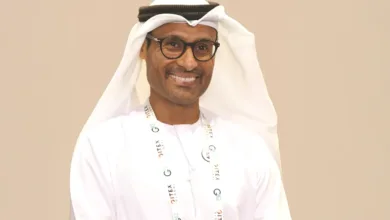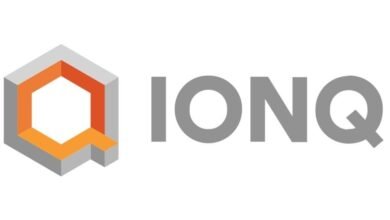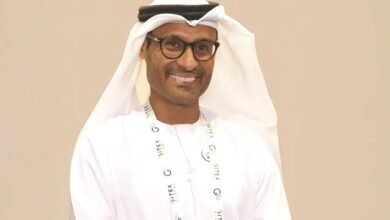Abu Dhabi Unveils 15 Strategic Partnerships at GITEX 2025

▼ Summary
– Abu Dhabi showcased 55 AI-native government projects at GITEX GLOBAL 2025, aiming to become the world’s first fully AI-native government.
– The Department of Culture and Tourism introduced Smart Hotel Check-In using facial recognition for secure, contactless arrivals and VX Monitoring Hub for real-time tourism insights.
– The Department of Health launched Population Health Intelligence, an AI-powered digital twin for proactive healthcare, and integrated health services into the TAMM Sahetna Spaces portal.
– The Advanced Technology Research Council debuted the UAE’s first quantum computing deployment for energy efficiency and a drone-powered disaster response system.
– Abu Dhabi announced 15 strategic partnerships, including AI-enhanced emergency response systems and telecommunications infrastructure for safer, smarter cities.
Abu Dhabi has taken a monumental leap in digital governance at GITEX GLOBAL 2025, announcing 15 strategic partnerships and presenting 55 projects that signal its evolution into the world’s first fully AI-native government. On the opening day, the emirate’s pavilion, led by the Department of Government Enablement – Abu Dhabi (DGE), featured more than 30 government and academic bodies under the banner “AI-Native by Design, Community-Driven by Purpose.” His Excellency Ahmed Tamim Hisham Al Kuttab, chairman of DGE, emphasized that every public service is being redesigned around citizen needs, embedding an AI-native mindset across the entire government ecosystem to empower communities and build a future-ready administration.
A standout feature this year was an immersive virtual reality experience allowing visitors to adopt six distinct personas, such as students, business owners, international tourists, and government employees, to explore firsthand how AI-native services are reshaping daily life in Abu Dhabi. This interactive installation offered a tangible preview of the emirate’s digital future.
In the tourism sector, the Department of Culture and Tourism (DCT) introduced the Smart Hotel Check-In, a system that uses facial recognition to enable secure, contactless, and faster hotel arrivals. Supporting multiple languages and streamlining group check-ins, the technology enhances efficiency for both travelers and hotel staff. DCT also launched the VX Monitoring Hub, a real-time analytics platform that evaluates every phase of the tourism journey, providing actionable insights to help teams refine services, address issues promptly, and deliver exceptional visitor experiences.
Healthcare innovation took a significant step forward with the Department of Health – Abu Dhabi (DoH) unveiling Population Health Intelligence. This initiative consolidates diverse health data into a single AI-powered digital twin of Abu Dhabi’s health ecosystem. By forecasting health risks, simulating future scenarios, and guiding targeted interventions, the system aims to extend healthy life expectancy and promote proactive, preventative care. In collaboration with TAMM, DoH also presented TAMM Sahetna Spaces, a unified portal integrating 1,100 public and private health services. Residents can now manage medical records, insurance, prescriptions, and wellness tools, as well as access teleconsultations, preventive screenings, and support for overseas treatment, giving individuals greater control over their health.
In the energy sector, the Advanced Technology Research Council (ATRC), alongside ADNOC, ASPIRE, and the Technology Innovation Institute (TII), launched the UAE’s first quantum computing deployment for energy. Using quantum algorithms, the initiative aims to enhance operational efficiency, cut emissions, and accelerate progress toward ADNOC’s Net Zero by 2045 goal. ATRC also showcased a drone-powered disaster response system, capable of delivering real-time aerial intelligence through integrated manual, long-range, and swarm-based operations during emergencies.
Several key partnerships were formalized to bolster Abu Dhabi’s emergency response and urban infrastructure. These included an agreement between Abu Dhabi Police and e& for next-generation telecommunications infrastructure with AI and IoT integration, designed to build safer, smarter cities. The Family Development Foundation teamed up with Etisalat to deploy an AI-powered monitoring system that protects senior citizens through smart safety alerts and rapid emergency response. Additionally, the Abu Dhabi Civil Defence Authority entered six infrastructure agreements with Arabian Vision, Colorworks, Digital Next, Sara Electrical Supplies, Tatweer, and Gulf Business Machines, securing advanced emergency equipment and integrated command systems. On display was the RAAD Vehicle, a robust 4×4 fire-command platform equipped with off-road capability and real-time situational intelligence.
Through these groundbreaking projects, next-generation service launches, and strengthened global alliances, Abu Dhabi’s presence at GITEX GLOBAL 2025 highlights its determined push to become a pioneering AI-native government. By placing human-centered innovation at the core of its strategy, the emirate is setting new international standards for digital governance, demonstrating how technology can create a smarter, more responsive, and future-focused administration.
(Source: Economy Middle East)





